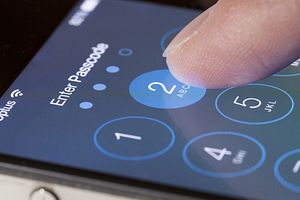Trust. While domestically it defines the debate between Apple and the FBI, we should not minimize its relevance, and consequently the outcome of the court battle, on American soft power. Sinologist David Shambaugh does a side-by-side comparison between the United States and China in his book China Goes Global: The Partial Power. Despite spending enormous money and effort spreading its message and culture Shambaugh concludes that China nevertheless has made little progress in actually diminishing America’s relative advantage in soft power.
It seems soft power is really about trust, and it cannot be bought to accrue diplomatic advantage. While the domestic debate is over whether Americans can trust their government with their data, the question is really about power. Specifically, the power of the individual versus the state.
The U.S. constitution defines a pact between the governing and the governed. The contract stipulates those powers the individual grants to the state in order to deliver security and prosperity to the public.
This power-sharing contract between Americans and the state creates an enormous hurdle for nations who hope to develop their own soft power. In essence it means that soft power must be earned on the basis of trust, and it is granted to those nations that derive their power from the willing consent of their citizens.
This puts Apple’s battle with the FBI on a higher plane. Not only will the outcome define digital rights in America, it will also create momentum towards a new world order.
Already, authoritarian governments are making the case for international rules and norms which say that individual rights in cyberspace are derived not from the individual, but the state. A ruling that forces Apple to design an operating system that can be hacked by the state is entirely consistent with this idea. Therefore, America’s position in the competition for soft power would be secured with an Apple win.
Tim Cook was right to highlight the danger Americans would face from criminal elements if a hackable iOS was developed. He understood that ecommerce is nothing without trust, and decided correctly that even Apple could not be trusted with its customers’ data. Undoubtedly opening up iOS to Apple would create the potential for opening it up to others, whether for good or ill.
Moreover, not only would an Apple win keep America’s position in soft power intact, it could also make future Americans safer by improving the country’s delivery of hard power. To understand this point it is necessary to envision a future where an individual’s digital rights are enshrined in law. In such a world, the individual is free to grant those rights to government on the basis of trust, and will most likely do so if they trust the government with their security.
For example, consider a terrorist attack that commences in New York City at some future date. First responders will likely be those citizens at the epicenter, and smart devices in their possession may be the government’s first indication of an attack. Once alerted, the government could in turn warn other nearby citizens and guide them to safety using their smart devices. Still other citizens willing to be the government’s eyes and ears could provide real-time intelligence via their smart devices. Still other citizens could be deputized to target the terrorists using government assets temporarily controlled by their smart devices. The basis for this future scenario is digital trust between the governing and the governed.
What the current FBI case against Apple fails to envision is a future where it may be more important for a government to gain access to a citizen’s smart device at the beginning of a terrorist attack. While access to the smartphone after the San Bernadino attack could give hindsight into terrorist intentions and actions, the method of obtaining that access could start America on a path that spreads digital mistrust.
Apple made a bet on encryption, because it understood the importance of trust to the future of ecommerce. If its customers begin to distrust their smart devices because hackers begin to use the same back doors requested by the FBI in their case against Apple, then they may choose to stop using them.
Trust. It is not just the basis of a world order where America’s relative strength in soft power continues, but also one where the state has the power to stop terrorists during the early stages of an attack. If the FBI wins, in the short term we may learn something about the San Bernadino terrorist’s intentions. Yet, in the long run Americans may find they live in a world where soft power goes to the highest bidder, and terrorists are free to exploit the resulting vulnerabilities.
Col. Robert Spalding, PhD is a B-2 pilot and former military fellow at the Council on Foreign Relations.

































